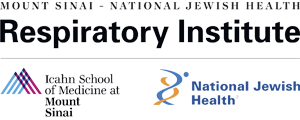
Bronchiectasis and NTM Programs
Bronchiectasis is a condition that affects the airways (bronchial tubes) in the lungs to get thicker due to infection or inflammation. It tends to affect the airways (called bronchial tubes) that branch from the trachea into each lung. When a person has bronchiectasis, the airways are permanently widened and inflamed. This condition makes it difficult for your body to clear bacteria and mucus from your lungs.
Living with bronchiectasis is a unique and special challenge that you and your family must deal with on a daily basis. But the more you know about bronchiectasis, the better suited you are in managing the various aspects of your disease. As you take control, your quality of life will improve.
Be sure to talk with your health care provider if you have questions or concerns about your plan. Write down any questions you have and ask your health care provider at your next appointment.
You may find yourself coughing, short of breath, and needing to spit. The Mount Sinai Bronchiectasis Program can diagnose and treat this condition so you can function normally.
Causes of Bronchiectasis
You might be born with bronchiectasis or it might develop over time. The most common causes are:
- Airway Obstructions: A growth in your airways can block air from moving. This can trap mucus and infections and possibly lead to bronchiectasis. Chronic obstructive pulmonary disease (COPD) is probably the most common condition that blocks the airways.
- Aspiration: If you often breathe in materials such as food, drink, or reflux, your airways can become inflamed and cause bronchiectasis. Breathing in these materials is called aspiration. It can be caused by a variety of conditions, including oropharyngeal dysphagia and gastroesophageal reflux disease (GERD).
- Autoimmune Diseases: Rheumatologic, autoimmune, or connective tissue conditions (such as rheumatoid arthritis or lupus) can cause bronchiectasis.
- Genetic Diseases: Some genetic diseases, such as cystic fibrosis, primary ciliary dyskinesia, and alpha1 antitrypsin deficiency, can cause recurrent lung infections. Having a lot of lung infections can lead to bronchiectasis.
- Immune Diseases: If you have an immune deficiency, you may be more likely to have recurrent lung infections. Repeat infections can damage your airways and lead to bronchiectasis.
- Infections: A variety of types of infections can lead to bronchiectasis. These include viral (such as measles or influenza), bacterial (including pseudomonas aeruginosa or staphylococcus aureus), mycobacterial (such as tuberculosis), and fungal infections (e.g., histoplasmosis).
Symptoms of Bronchiectasis
The signs and symptoms of bronchiectasis may include the following:
- Chronic sinusitis
- Coughing, which can produce mucus (may be discolored, foul-smelling, and contain blood)
- Fatigue
- Shortness of breath
- Weight loss
- Wheezing
It is important to get treatment for any of these symptoms. If you don’t receive treatment, these symptoms can cause even more shortness of breath, cause heart failure, and negatively affect the overall quality of your life. At the Mount Sinai Bronchiectasis Program, we are here to help.
Treatments for Bronchiectasis
Each treatment technique can be prescribed by your health care provider. Correct technique using these devices is very important. Make sure a health care provider, often a Respiratory Therapist, experienced in the use of the device shows you how to use it. It is also important to have your technique checked periodically to make sure you continue to use it correctly to obtain the most benefit.
At times patients with bronchiectasis acquire infections with organisms such as multi-resistant bacteria, non-tuberculous mycobacteria (NTM) which will require complex treatment regimens.
Treatments for bronchiectasis include:
- Individualized airway clearance regimens
- Nebulizers
- Medications (antibiotics, bronchodilators, expectorants, mucus thinners)
- Oxygen therapy
- Pulmonary rehabilitation
- Surgery
Why Mount Sinai
The Bronchiectasis and NTM Programs at Mount Sinai consists of a team of experts from different specialties providing multidisciplinary assessment. With expert consultation in collaboration with National Jewish Health in Denver, our doctors are committed to offering you the world-class care patients with bronchiectasis deserve.
